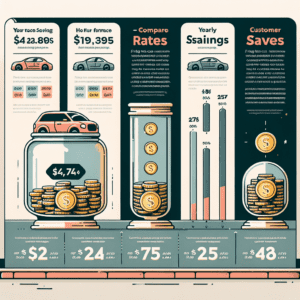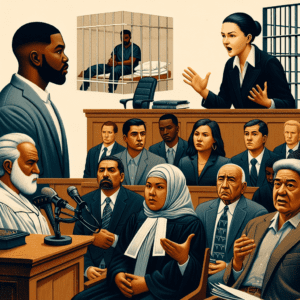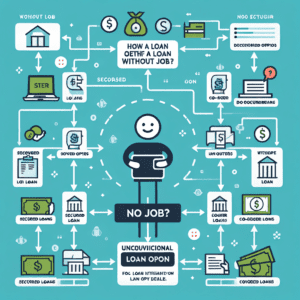“Universal Healthcare: Balancing Legal Rights and Medical Access.”
Legal Perspectives on Universal Healthcare: Understanding Medical Rights
The debate over universal healthcare remains one of the most contentious issues in modern policy discussions, with legal perspectives playing a crucial role in shaping the discourse. At the heart of this debate lies the question of whether access to healthcare should be considered a fundamental right or a privilege contingent upon economic and social factors. Legal frameworks across different jurisdictions provide varying interpretations of medical rights, influencing the extent to which governments are obligated to ensure healthcare access for their citizens. Understanding these legal perspectives is essential in evaluating the feasibility and implications of universal healthcare policies.
In many countries, constitutional provisions, statutory laws, and international agreements establish the foundation for medical rights. Some nations explicitly recognize healthcare as a fundamental right, obligating the government to provide access to medical services for all individuals. For instance, Article 25 of the Universal Declaration of Human Rights, adopted by the United Nations, asserts that everyone has the right to a standard of living adequate for health and well-being, including medical care. Similarly, the International Covenant on Economic, Social and Cultural Rights (ICESCR) obligates signatory states to take steps toward achieving universal healthcare. However, the extent to which these international agreements influence domestic law varies, as some countries incorporate these principles into their legal systems while others treat them as aspirational goals rather than enforceable rights.
In contrast, other legal systems approach healthcare as a service that individuals must obtain through private or employer-based insurance, with government intervention limited to specific populations such as the elderly, low-income individuals, or veterans. In the United States, for example, there is no explicit constitutional right to healthcare. Instead, access to medical services is largely determined by market forces, with government programs like Medicare and Medicaid providing coverage for certain groups. Legal challenges have frequently arisen regarding the extent of government responsibility in ensuring healthcare access, particularly in cases involving the Affordable Care Act (ACA). The Supreme Court’s rulings on the ACA have shaped the legal landscape by affirming the government’s ability to regulate healthcare markets while also recognizing limitations on federal authority to mandate coverage.
Beyond constitutional and statutory considerations, legal debates surrounding universal healthcare often involve issues of equity, non-discrimination, and public interest. Courts in various jurisdictions have addressed cases where individuals claim that denial of healthcare services violates their fundamental rights. In some instances, judicial decisions have expanded access to medical care by interpreting existing legal provisions in favor of universal coverage. For example, courts in countries with constitutional guarantees of healthcare have ruled that governments must take reasonable steps to ensure access, even if financial constraints exist. Conversely, in legal systems where healthcare is not explicitly recognized as a right, courts have generally deferred to legislative bodies in determining the scope of medical entitlements.
Ultimately, the legal perspectives on universal healthcare reflect broader societal values and policy priorities. While some legal frameworks establish healthcare as a fundamental right requiring government action, others emphasize individual responsibility and market-based solutions. As debates over healthcare policy continue, legal interpretations will remain central in shaping the future of medical rights and determining the extent to which universal healthcare can be realized within different legal systems.
The Constitutional Debate Over Universal Healthcare: What the Law Says

The debate over universal healthcare in the United States has long been a contentious issue, with legal, ethical, and economic implications. At the heart of this discussion lies the question of whether healthcare is a fundamental right or a privilege. While many developed nations have embraced universal healthcare as a legal and moral obligation, the U.S. remains divided on the issue. The constitutional debate over universal healthcare revolves around interpretations of federal authority, individual rights, and the role of government in ensuring access to medical services. Understanding what the law says about medical rights requires an examination of constitutional principles, judicial rulings, and legislative actions that have shaped the healthcare landscape.
The U.S. Constitution does not explicitly guarantee a right to healthcare. Unlike other rights enumerated in the Bill of Rights, such as freedom of speech or due process, healthcare is not directly mentioned. However, legal scholars and policymakers have debated whether certain constitutional provisions imply a governmental responsibility to provide healthcare. The Commerce Clause, for instance, grants Congress the power to regulate interstate commerce, which has been used to justify federal involvement in healthcare policy. Additionally, the General Welfare Clause has been cited as a basis for government programs aimed at promoting public health. These interpretations have played a significant role in shaping healthcare legislation, particularly in cases where federal authority has been challenged.
One of the most significant legal developments in the healthcare debate was the passage of the Affordable Care Act (ACA) in 2010. The law sought to expand healthcare access through mandates, subsidies, and Medicaid expansion. However, its constitutionality was immediately challenged, leading to the landmark Supreme Court case *National Federation of Independent Business v. Sebelius* (2012). The Court ruled that while the individual mandate requiring Americans to purchase health insurance exceeded Congress’s power under the Commerce Clause, it was permissible under Congress’s taxing authority. This decision underscored the complexity of constitutional arguments surrounding healthcare and demonstrated how legal interpretations can shape policy outcomes.
Beyond federal law, state governments also play a crucial role in determining healthcare access. Some states have implemented their own universal healthcare initiatives, arguing that state constitutions provide broader protections for medical rights. For example, Massachusetts enacted a healthcare reform law in 2006 that served as a model for the ACA. Other states have expanded Medicaid beyond federal requirements, while some have resisted such measures, citing concerns over government overreach and financial sustainability. This variation in state policies highlights the ongoing legal and political struggle over healthcare rights in the U.S.
Internationally, many countries recognize healthcare as a fundamental right, enshrining it in their constitutions or legal frameworks. Nations such as Canada, the United Kingdom, and Germany provide universal healthcare through government-funded systems, reflecting a different legal and philosophical approach. Proponents of universal healthcare in the U.S. argue that adopting a similar model would align the country with global standards and fulfill a moral obligation to ensure medical access for all citizens. Opponents, however, contend that such a system would infringe upon individual freedoms and lead to increased government control over personal healthcare decisions.
Ultimately, the constitutional debate over universal healthcare remains unresolved, with legal arguments continuing to evolve alongside political and social changes. While the law does not explicitly guarantee healthcare as a right, legislative and judicial actions have shaped policies that expand access to medical services. As discussions on healthcare reform persist, the legal framework will continue to play a crucial role in determining the extent of government responsibility in ensuring medical rights for all Americans.
Patient Rights and Universal Healthcare: A Legal Analysis
The debate over universal healthcare has long been a contentious issue, with legal, ethical, and economic implications shaping discussions worldwide. At the heart of this debate lies the question of whether access to healthcare should be considered a fundamental right or a privilege. Legal frameworks across different jurisdictions provide varying perspectives on this issue, with some nations enshrining healthcare as a guaranteed right for all citizens, while others approach it as a service contingent on economic and social factors. Understanding the legal foundations of patient rights in the context of universal healthcare requires an examination of constitutional provisions, statutory laws, and international agreements that influence healthcare policies.
In many countries, the right to healthcare is explicitly recognized in national constitutions or legal statutes. For instance, nations such as Canada, the United Kingdom, and Germany have established universal healthcare systems that ensure access to medical services regardless of an individual’s financial status. These systems are often supported by legislation that mandates government responsibility for providing healthcare services. In contrast, the United States does not explicitly recognize healthcare as a constitutional right, leading to a system where access is largely determined by employment-based insurance, government programs, or private coverage. However, legal provisions such as the Emergency Medical Treatment and Labor Act (EMTALA) ensure that individuals cannot be denied emergency medical care based on their ability to pay, reflecting a partial recognition of healthcare as a necessity.
Beyond national laws, international human rights agreements also play a significant role in shaping the legal discourse on universal healthcare. The Universal Declaration of Human Rights, adopted by the United Nations in 1948, asserts that everyone has the right to a standard of living adequate for health and well-being, including medical care. Similarly, the International Covenant on Economic, Social and Cultural Rights (ICESCR) obligates signatory states to take steps toward ensuring access to healthcare for all citizens. While these agreements establish a broad legal framework, their enforcement varies depending on national policies and the extent to which governments incorporate international obligations into domestic law.
Despite these legal foundations, the implementation of universal healthcare remains a subject of debate, particularly in countries where market-driven healthcare models dominate. Opponents argue that government-mandated healthcare systems may lead to inefficiencies, increased taxation, and potential limitations on medical innovation. They contend that a free-market approach allows for greater competition, which can drive improvements in quality and accessibility. On the other hand, proponents of universal healthcare emphasize that access to medical services should not be dictated by financial means, asserting that healthcare is an essential human right that governments have a duty to protect. They argue that legal frameworks supporting universal healthcare contribute to overall public health, reduce disparities, and ensure that no individual is denied necessary medical treatment due to economic hardship.
Ultimately, the legal analysis of patient rights in the context of universal healthcare highlights the complex interplay between law, policy, and ethical considerations. While some legal systems explicitly guarantee healthcare as a right, others rely on a combination of statutory protections and market mechanisms to regulate access. As the global conversation on healthcare continues to evolve, legal frameworks will remain central to determining how societies balance individual rights with economic and governmental responsibilities.















